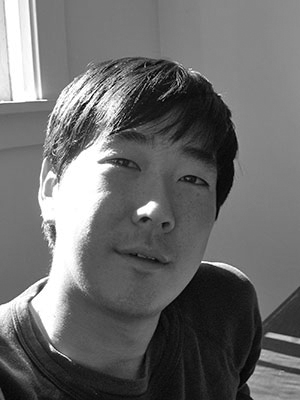

Michael Kunichika is an associate professor of Russian. He completed his undergraduate study at Reed College, where he majored in Russian. He went on to get his doctorate in Slavic languages and literatures with a designated emphasis on film studies from the University of California, Berkeley.
Q: How did you begin studying your subject?
A: Reed had a lot of distribution requirements and one of the requirements is that you have to choose between math and a foreign language, and since I knew math wasn’t for me, I decided to go with foreign language. I did not do well on the Spanish placement exam, and so I would have had to start at the beginning with Spanish, so instead I decided to try Russian. During my Russian studies I met the most amazing professor, Lena Lencek, who taught my second-year Russian course. She is the most extraordinary professor I have ever studied with and encouraged my love of Russian.
Q: What is your favorite part about teaching Russian?
A: The thing that I love the most is seeing students use a word they just learned or their ability to recognize a new word. It is crazy to see students acquiring new information and putting it to immediate use. When I teach the third-year Russian course, I am always amazed at what the students can achieve after only a few years of Russian. In that class, students read classic Russian literature and they really do achieve a high level of understanding of the material.
Q: What were you doing before you started at Amherst?
A: Before coming to Amherst, I taught at New York University, the Institute for Advanced Study and Harvard University.
Q: What made you decide to come to Amherst?
A: Amherst is heaven for teaching. There are so many resources and so much support between faculty members. The Russian department here has a rich and deep history, and the Center for Russian Culture also drew me to Amherst.
Q: Can you tell me about the classes you teach at Amherst?
A: This semester I am teaching Third-Year Russian and Russia and the Representation of Race. In Third-Year Russian, we read Russian literature in its original form. In Russia and the Representation of Race, we explore how Russia has thought about its own ethnicities and how Russia has served as a model for other minorities to think about their identities. Next fall, I will be teaching Second-Year Russian and Nabokov’s Art and Terrors. Nabokov’s Art and Terrors is a survey course on his novels. Students will begin to think about the nature of his literary art and how each of his different works deal with different types of terrors.
Q: Are you currently doing any research?
A: Yes, I am currently working on two projects. First off, I am writing a book called “Specters of Empire: Early Soviet Cinema and the Representation of Race.” This book deals with how cinema created novel ways of representing ethnic minorities and how race as portrayed in film is related to the imperialistic and anti-imperialistic policies at the time. In addition, I am working on another project that focuses on the rediscovery of prehistory, including cave painting and prehistoric artifacts in Russia. During the 1960s, there was a reinvigorated interest in the deep past, and my project is about why this interest remerged.
Q: How does Amherst as a community compare to other places you’ve worked?
A: It is always impressive to me to see how much students and faculty care about this place as an institution. There is a high degree of care that people have for this place in addition to a great deal of support amongst the faculty.
Q: What do you do in your spare time?
A: I do not have much spare time, but one of the things I love to do is to watch movies. Luckily for me, movies are a part of my research! I also make time to explore local restaurants with faculty members.